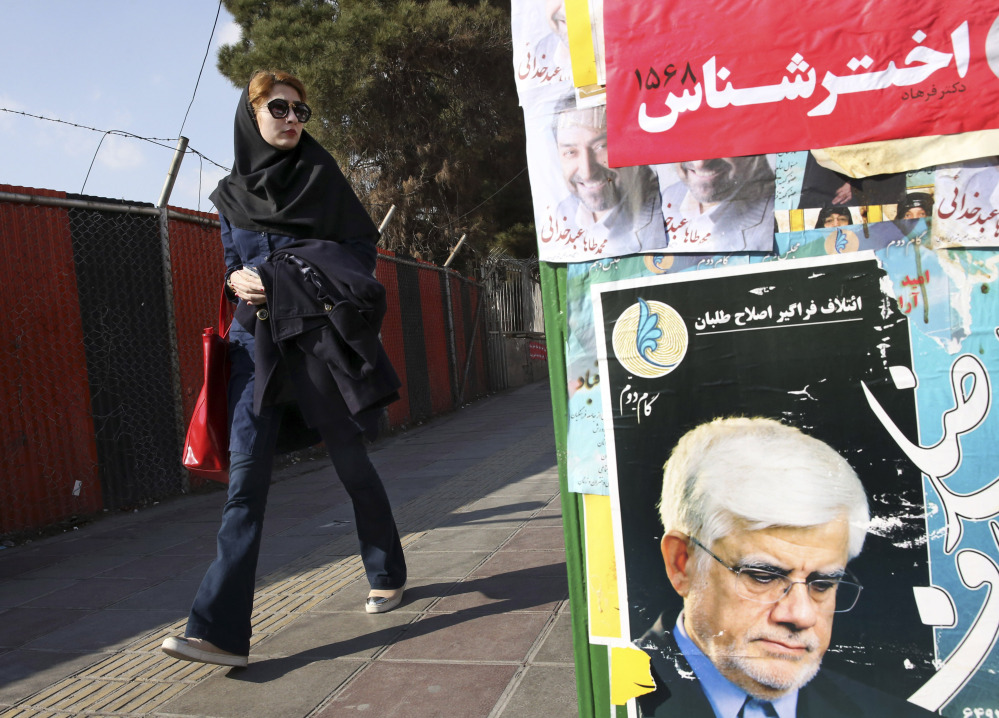Iranians vote Friday in national elections that once had the potential to be pivotal until almost every would-be candidate advocating reform was barred from running.
With only a limited number of moderates and reformers on the ballot, analysts say the election is unlikely to foreshadow a history-making moment of change in Iran. The parliament and many other government bodies will continue to be dominated by conservatives, constraining the ability of Hassan Rouhani, Iran’s pragmatist president, to push through reforms.
But the election – the first since a nuclear deal lifted most of the international sanctions that had hobbled economic growth – is being closely watched nevertheless.
Though opposition activists call the election a sham, the vote totals could open a small window onto the Iranian appetite for change and Rouhani’s political future.
Many Western officials hoped the nuclear deal’s implementation in January would pave the way for Rouhani to introduce measures granting civil liberties and less Internet censorship, as he promised when he was elected in 2013. Now the best-case scenario is that urbanized voters in Tehran give Rouhani a small but strong minority to support economic reform.
“At the end of the day, it’s going to be seen as a referendum on Rouhani’s policies,” said Trita Parsi, president of the National Iranian American Council, who is writing a book about the Iranian nuclear deal that was implemented in January. “We’ll see how many people back Rouhani, mindful of the fact he hasn’t delivered on opening up society, on civil rights or human rights.”
At stake are 290 seats in the parliament, or the Majles, an institution with limited powers but capable of blocking initiatives from the president’s office. There are 6,200 candidates, but that is barely half the number who initially registered to run. A hard-line body known as the Guardian Council disqualified more hopefuls than ever before in the 37 years since the Islamic revolution.
Nine moderate parties estimated that only 1 percent of the 3,000 reformist candidates who registered were permitted to run. Among those rejected were three dozen current members of parliament.
On the ballot are more female candidates than ever in a country where only 49 women have served in parliament since 1979. This time, 584 women are running, though about 800 were disqualified.
The election also will determine the Assembly of Experts, a uniquely Iranian council of 88 mostly elderly clerics who are nominally charged with selecting the next supreme leader if the ailing, 76-year-old Ayatollah Ali Khamenei dies in the next eight years of the assembly’s term. That candidate list also has been culled.
Send questions/comments to the editors.



Success. Please wait for the page to reload. If the page does not reload within 5 seconds, please refresh the page.
Enter your email and password to access comments.
Hi, to comment on stories you must . This profile is in addition to your subscription and website login.
Already have a commenting profile? .
Invalid username/password.
Please check your email to confirm and complete your registration.
Only subscribers are eligible to post comments. Please subscribe or login first for digital access. Here’s why.
Use the form below to reset your password. When you've submitted your account email, we will send an email with a reset code.